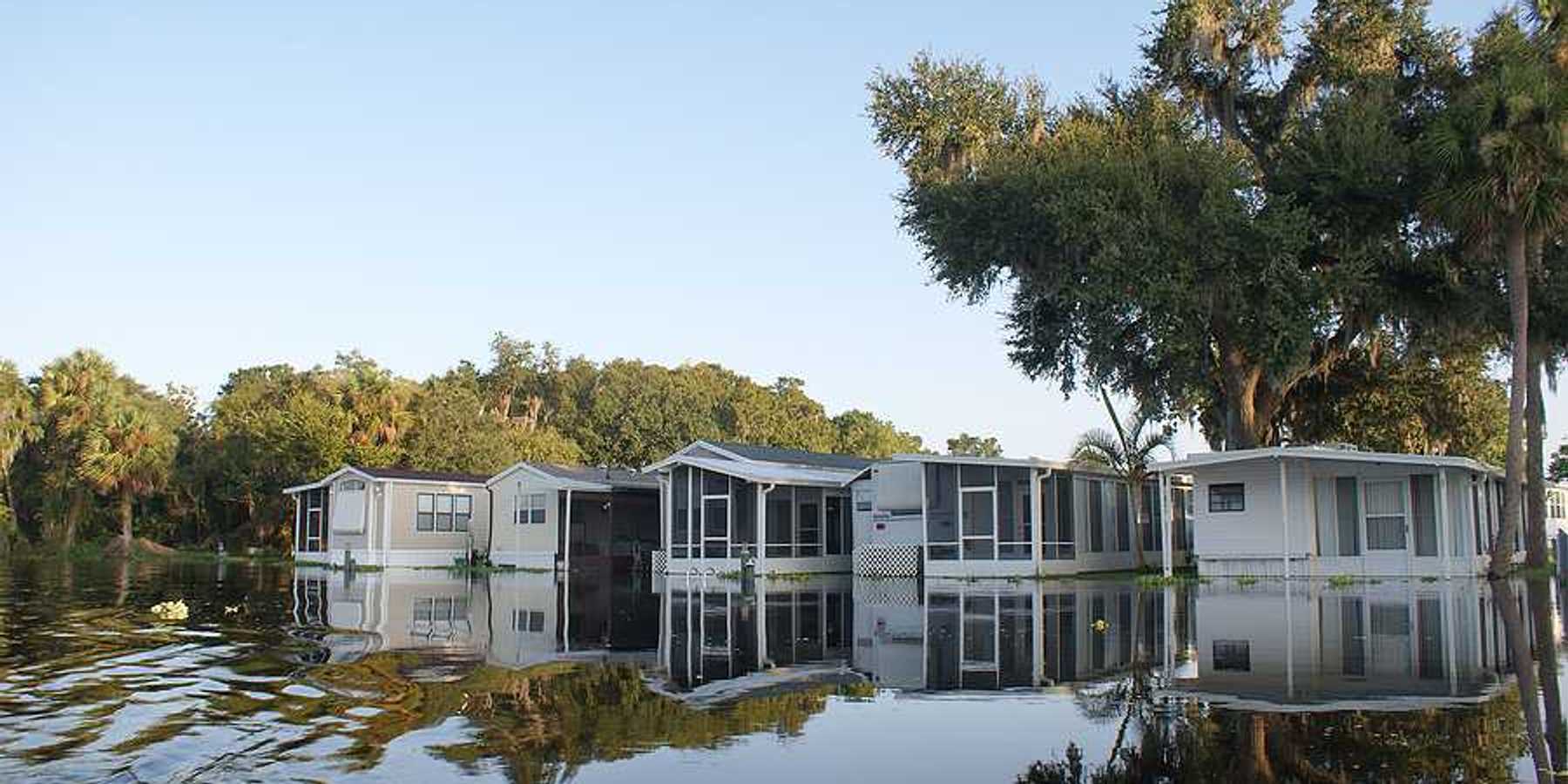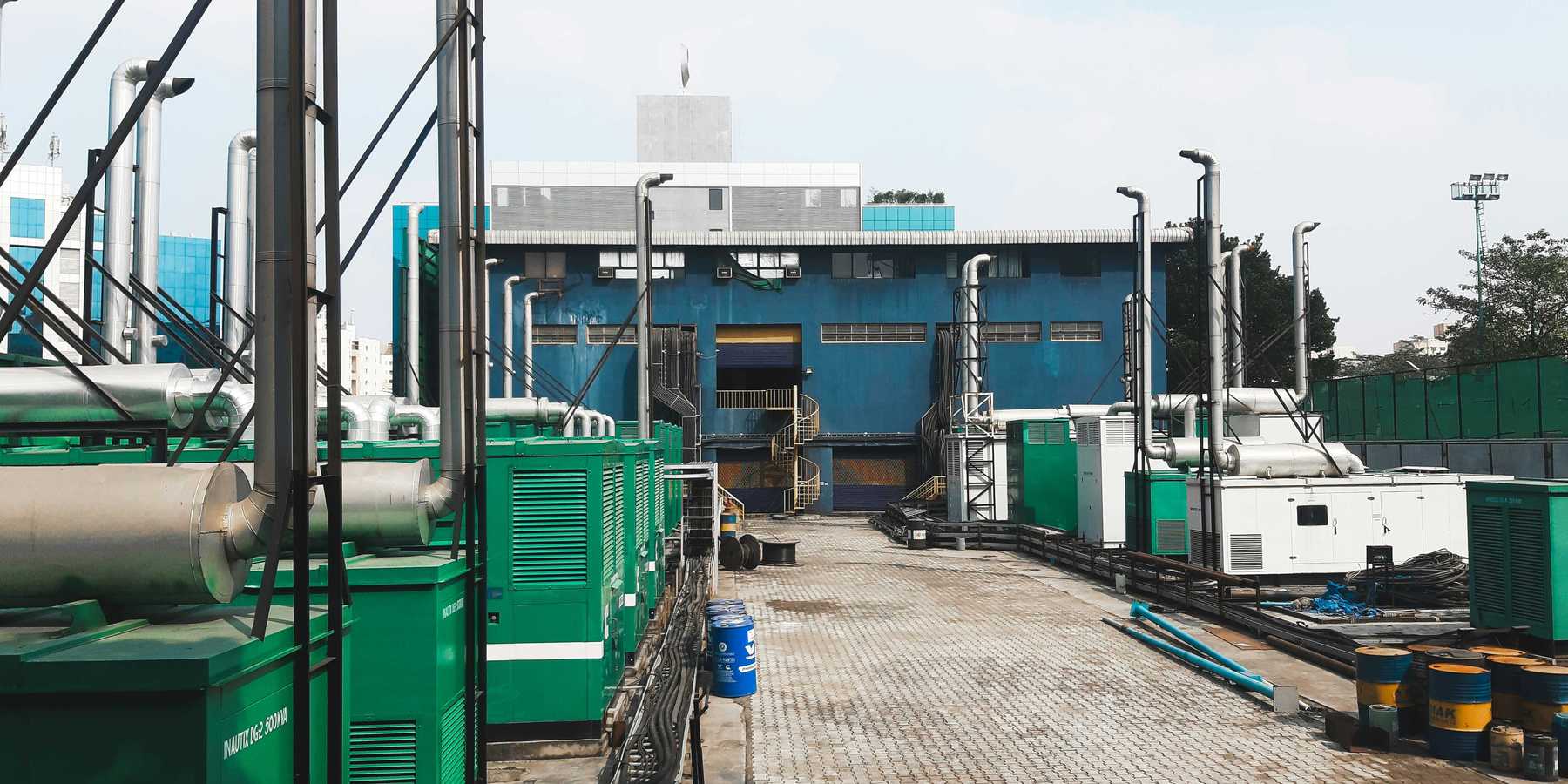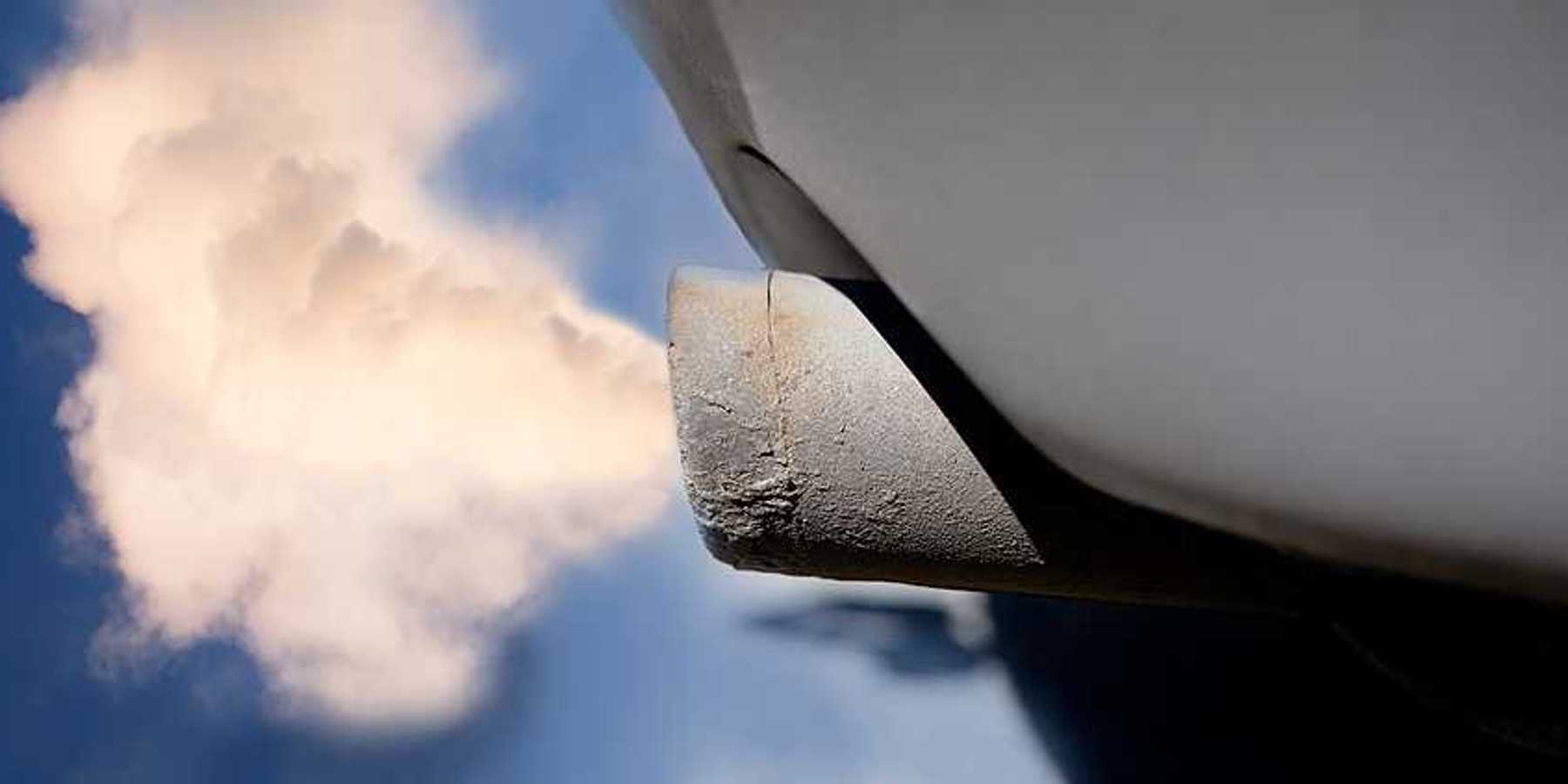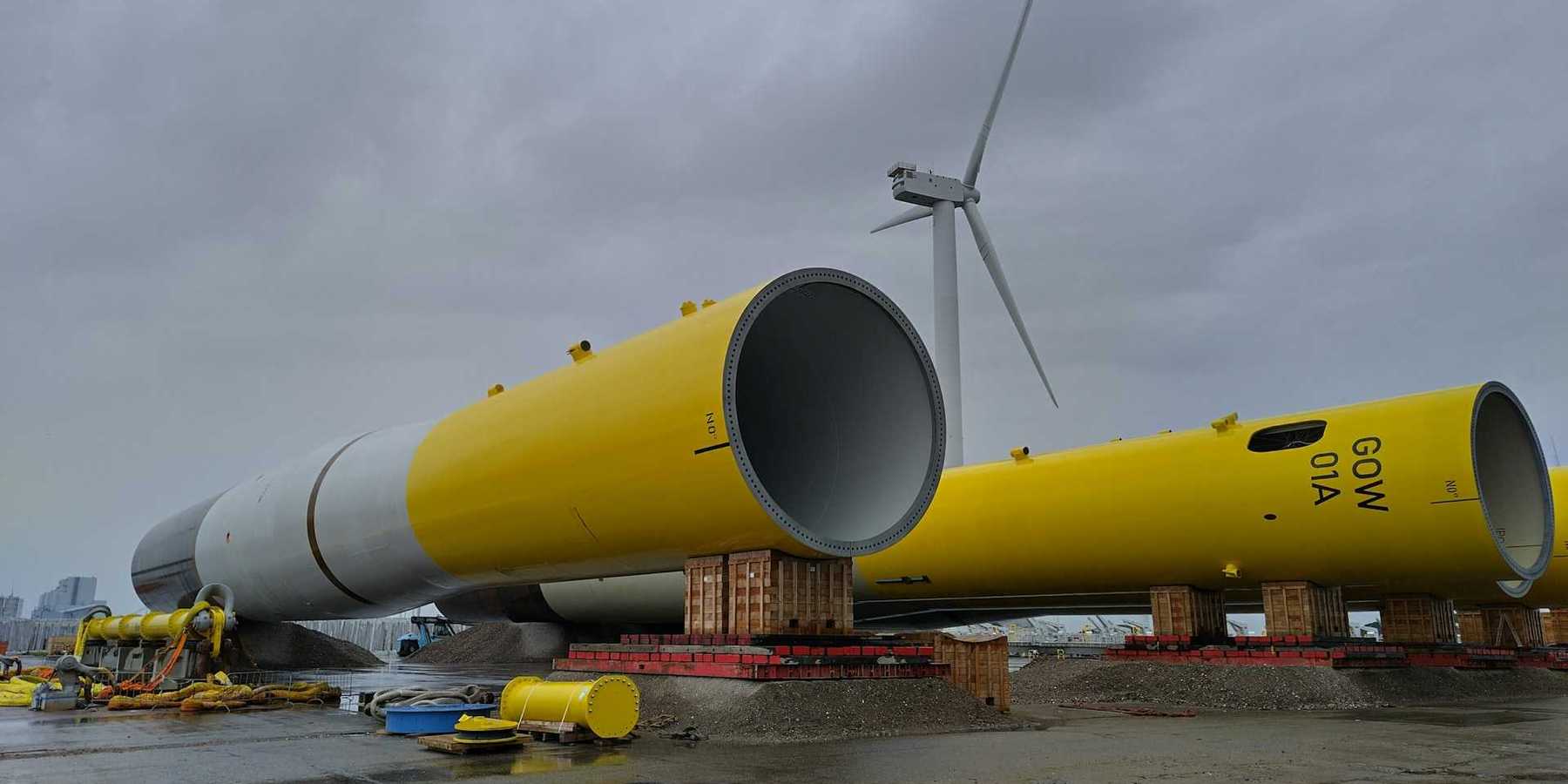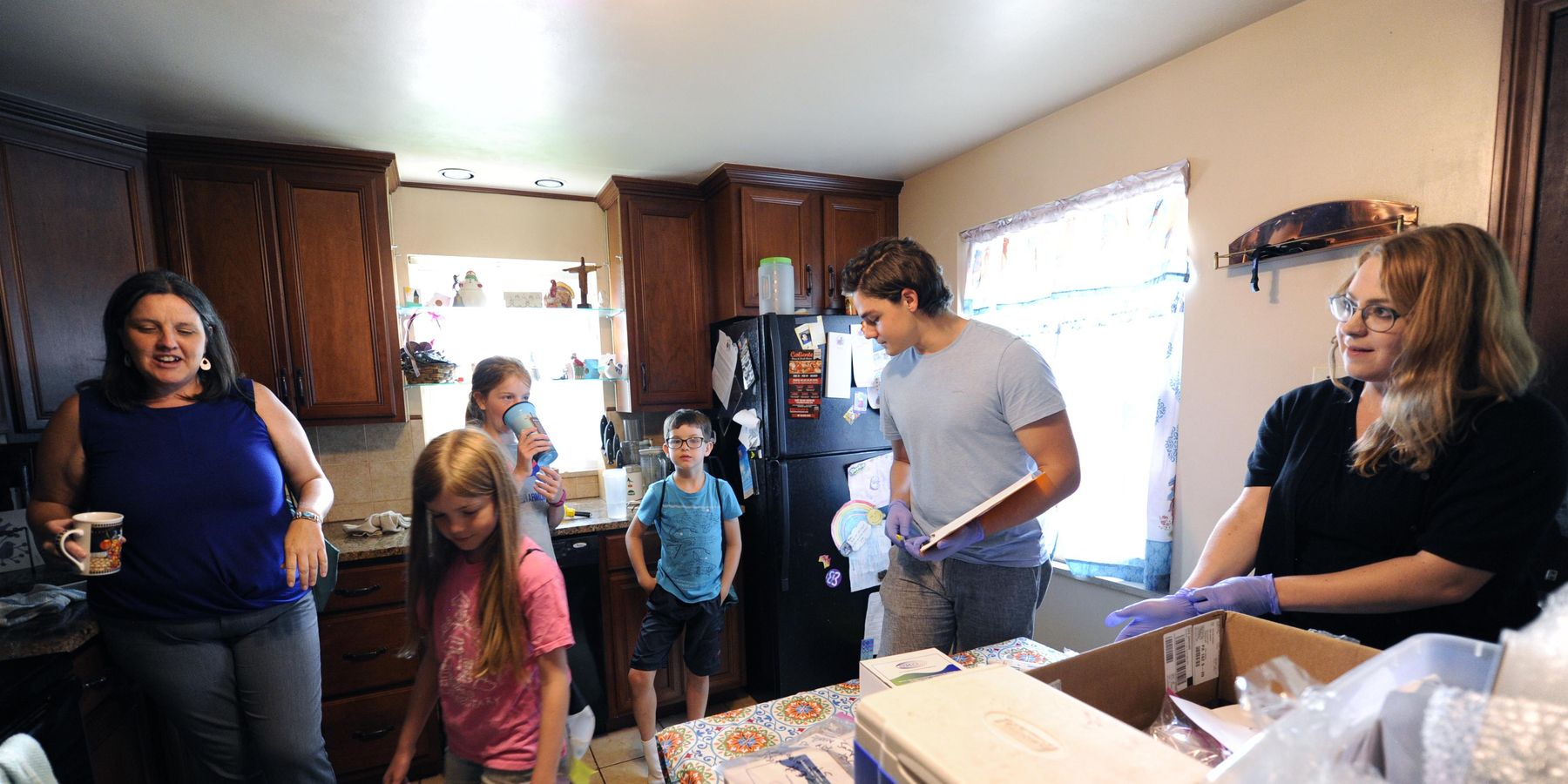
Fractured: Readers respond on fracking reporting
Our 'Fractured' investigation found disturbing evidence of fracking pollution leaching into our bodies. Readers responded.
In "Fractured" we followed the stories of five families living in or near fracking country in southwestern Pennsylvania. All are coping to various degrees with unexplained illnesses, anxiety, depression, social strain.
Tests of their urine found biomarkers that suggested high levels of exposure to toxic compounds commonly used in fracking operations – ethylbenzene, styrene, toluene.
We found chemicals like benzene and butylcyclohexane in drinking water and air samples.
These five families are not alone. We asked readers and organizations to share their stories. Here's how they reacted.
We want your story, too: Fill out our short three-question fracking survey, and we'll be in touch.Fracking refugee
"I consider myself a fracking refugee. I left my home of 61 years in 2015, aiming to emigrate to a state like Vermont or Oregon that forbids fracking. For a variety of reasons, I didn't get very far, but at least this area is not under threat of fracking—for now. I still am looking to emigrate though. I turned down $140,000 for the lease to frack my land."
- Karl Zimmerman, Pennsylvania
'Sand cans and waste haulers'
"I lived in West Virginia. Invisibly, I was affected by changed air and water. Visibly, I was affected by sand cans and water haulers, huge trucks hauling huge machinery for fracking, and by lying, gullible politicians.
"I know almost too much to live with. Every additional piece of research just about kills me. My anger is so deep around this issue that I can't think about it for more than about five to 10 minutes a day."
- Susan Kelley, Rhode Island
Fracking pollution proliferates
"There are many fracking wells inside and around my small town. I don't like to use certain parks or trails because they are adjacent to wells and you can smell the chemicals in the air. I worry about pollution of our air and water, but most locals seem to be unconcerned. I feel like the benefits of the industry are not worth trading our health or our environment's health. If someone offered me tens or hundreds of thousands of dollars for drilling or mineral rights, I would still say no because it is the right thing to do. I wish they would stop drilling and permanently seal the wells.
"I would like to know whether my air and tap water are safe. I would like to know whether I or my son have harmful levels of chemicals in our bodies. I would like the air and water to be monitored near fracking sites, especially when they are located near parks and schools. We have a lot of local flooding and I would like to know how wastewater ponds are protected from spilling into the environment."
– Hollin Shaw, Louisiana
Fracking data gap
"This investigation … fills in an important data gap and strongly suggests that the toxic emissions from fracking operations are entering the bodies of nearby residents at levels known to cause harm.
"Like the body burden results that documented lead poisoning in Flint, Michigan, from contaminated drinking water, today's findings show that fracking is poisoning children.
"This multi-part investigation serves as a powerful moral indictment of the Pennsylvania Department of Public Health, which has long privileged gas industry interests over protecting the health of Pennsylvania residents. Pennsylvania's children should not be used as laboratory rats in an uncontrolled human experiment involving toxic exposures."
– Sandra Steingraber, Concerned Health Professionals of New York
No baseline fracking data?
Writing on Twitter, LNG Economist asked:
"How exactly did you control for exposure to chemicals ordinarily found in farming and rural properties (pesticides, machinery fluids and so on) vs. those found (or rather not found) in regular urban locations?
"Clearly visible in the photos is a kitchen, where folks EAT, with finished wooden floors... guess what chemicals are used in those finishes? Controls? Nope."
We took great care from the very beginning to account for these two questions. As we note throughout our stories, we collected a great deal of information about other possible sources of exposure to these chemicals in the families we tested, and we note any other sources of exposure we observed that could be relevant.
As for baselines and benchmarks, fracking companies arrived 12 years ago in southwestern Pennsylvania. Despite pleas from some residents and community groups, no company or government agency tested residents beforehand to establish a baseline.
We do, however, have national data for some of these compounds—taken from Americans who have wood floors and apply pesticides and use farm machinery but don't live near fracking activity. And our results suggest that residents who live a typical life near fracking wells are exposed to pollution at levels far above what the rest of us see through everyday exposures.
We can't say definitively that these exposures came from fracking (nor do we, at any point in our reporting). What we are saying is that our findings are surprising, and they indicate a clear need for additional research in this area.
For more detailed information, check out our Fractured data analysis page here.
'Fractured' becomes part of the discussion
A number of environmental and health advocacy groups have incorporated this reporting into their work:
The Southwest Pennsylvania Environmental Health Project, one of our partners on this project, said the investigation "shows a path forward to definitive biomonitoring approaches when studying the body burden of people living in proximity to shale gas development."
The Better Path Coalition, noting Pennsylvania Gov. Tom Wolf's multi-year initiative to ban fracking in the Delaware River Basin, asked "how much more evidence does Governor Wolf need to provide the same protection to Pennsylvanians in the shale fields he was prepared to provide to people in the Delaware River Basin four years ago?"
Power of mothers to protect from fracking
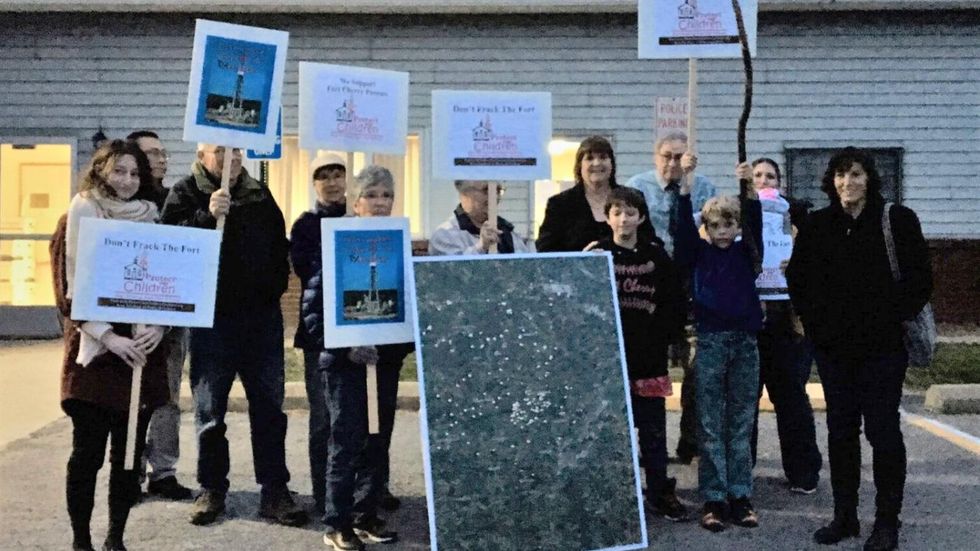
Veronica Coptis, writing on the Center for Coalfield Justice's blog, drew connections between EHN's reporting and an exposé published the same week in The New Yorker by reporter Eliza Griswold, "When the Kids Started Getting Sick," about an increase in rare bone cancers in the region:
"As a mother of two young children living a mile from several oil and gas operations, these articles were challenging to read, and I want to acknowledge that I needed time to move through being consumed by anxiety and fear over the risk my children are being exposed to as I read through them. You might have this same problem, whether you anticipate it or not….
"Seeing these reports, which confirm my worst fears about my kids being at undue risk, is hard. Like many others in my community, I don't have the ability to just pick up and leave, nor should I have to leave the place I love where my life and identity, as well as the rest of my family, is—the family that is helping me to raise my children. So, I do what all moms do: I do my best, keep putting one foot in front of the other under this extreme stress, and care for my family….
"And so, the burning question this mom is sitting with after reading these articles, after being presented with the compounding evidence of potential risk and harm from the expanding oil and gas operations in our region: Where are our decision-makers?
"These are the individuals who hold the power to create the change we need to improve our children's lives, and they are squandering that power by sitting complacently to the side, pocketing campaign donations and taking selfies with industry representatives at political dinners. I may not be able to understand how decision-makers can know what we know about industry and do nothing - or worse, actively continue to support - but I do know that there are hundreds of people coming together in our region to make them start answering to us."
Have you been impacted by fracking? We want to hear from you. Fill out our fracking impact survey and we'll be in touch.
Read our full report on fracking's personal pollution, "Fractured," here.
Banner photo: EHN reporter Kristina Marusic (right) and Southwest Pennsylvania Environmental Health Project intern Mason Secreti (middle-right) prepare to collect samples in the LeCuyer-Ley family's kitchen with Ann LeCuyer (left) and her children (Credit: Connor Mulvaney for Environmental Health News)

